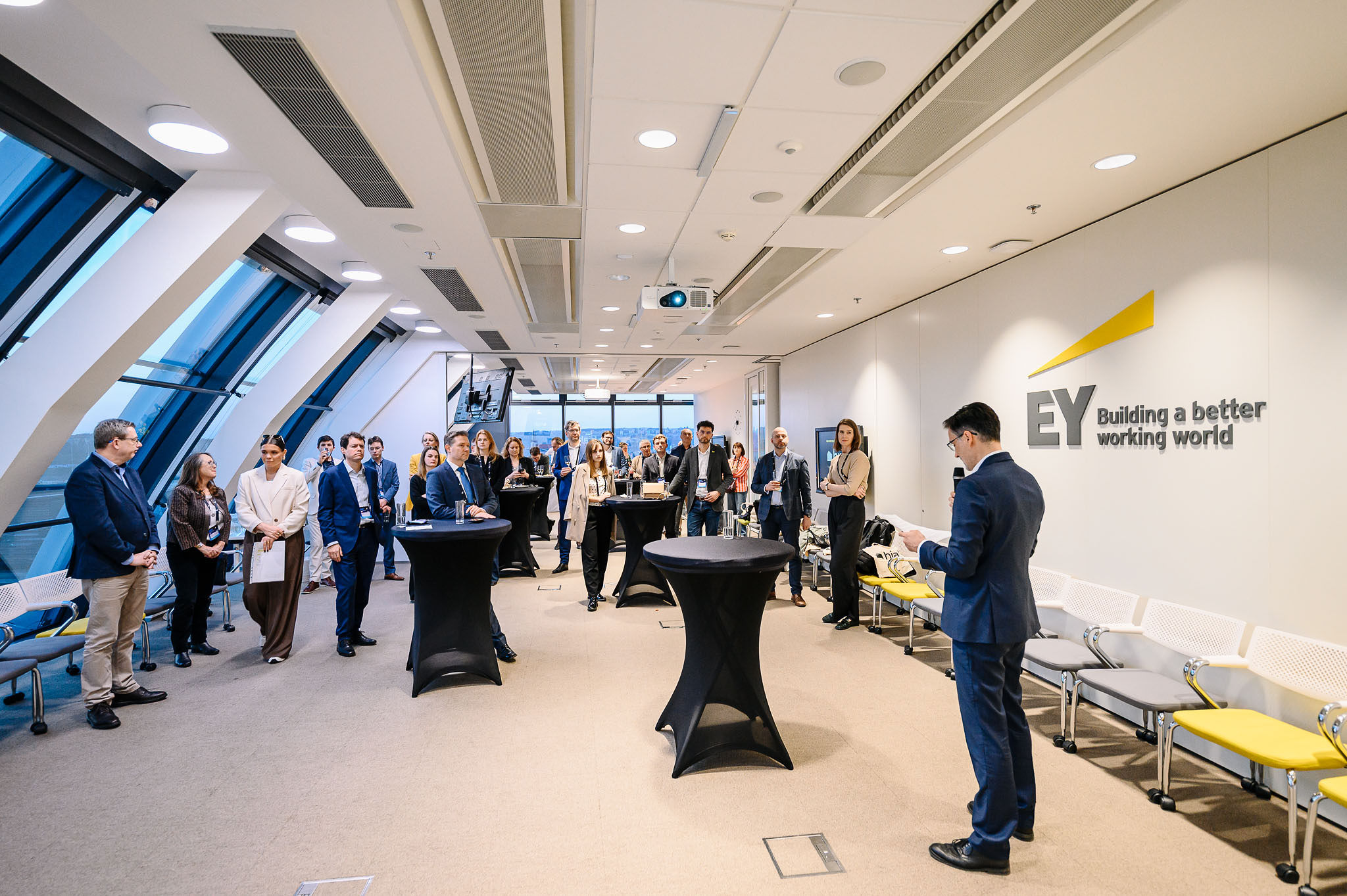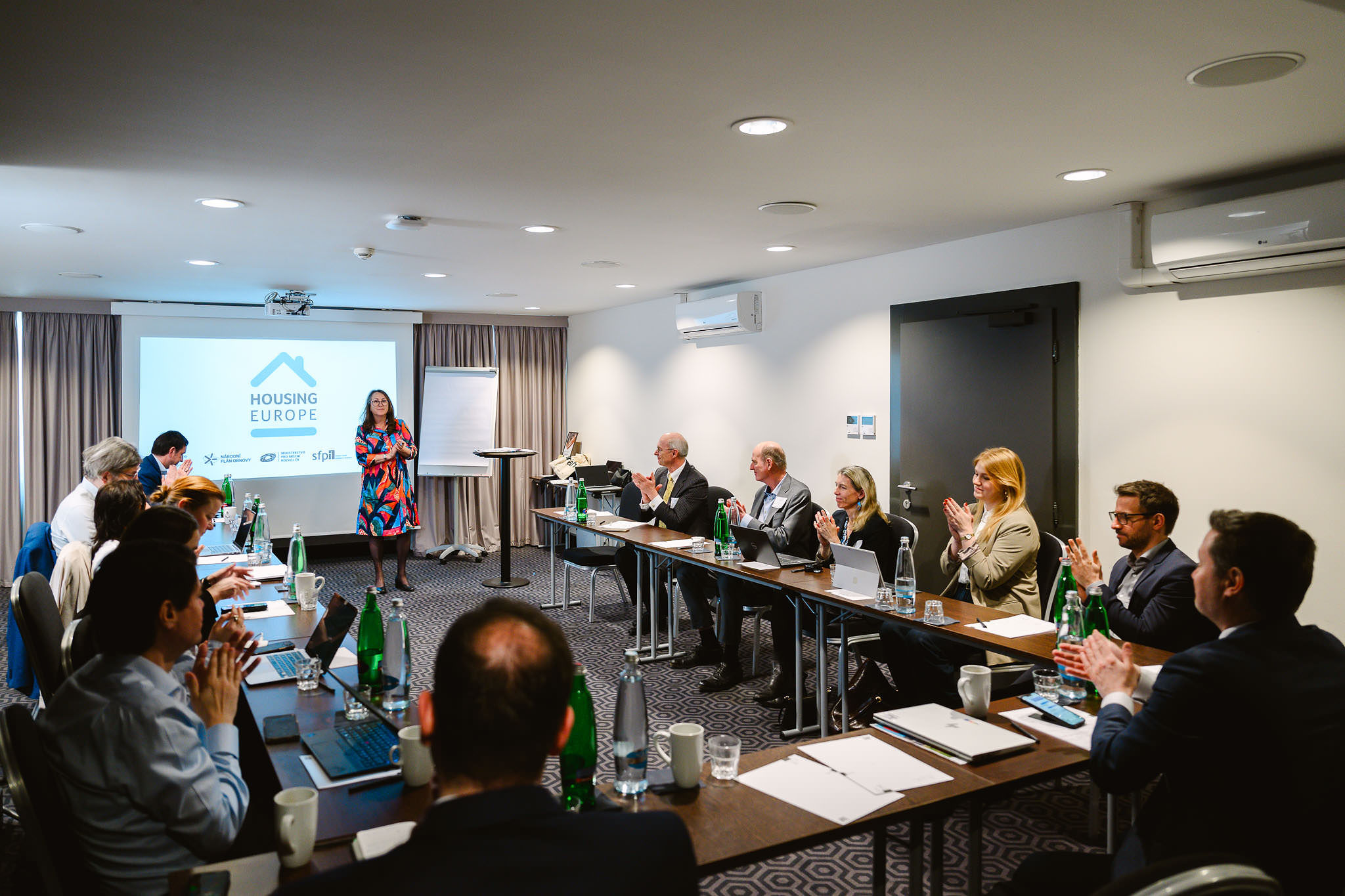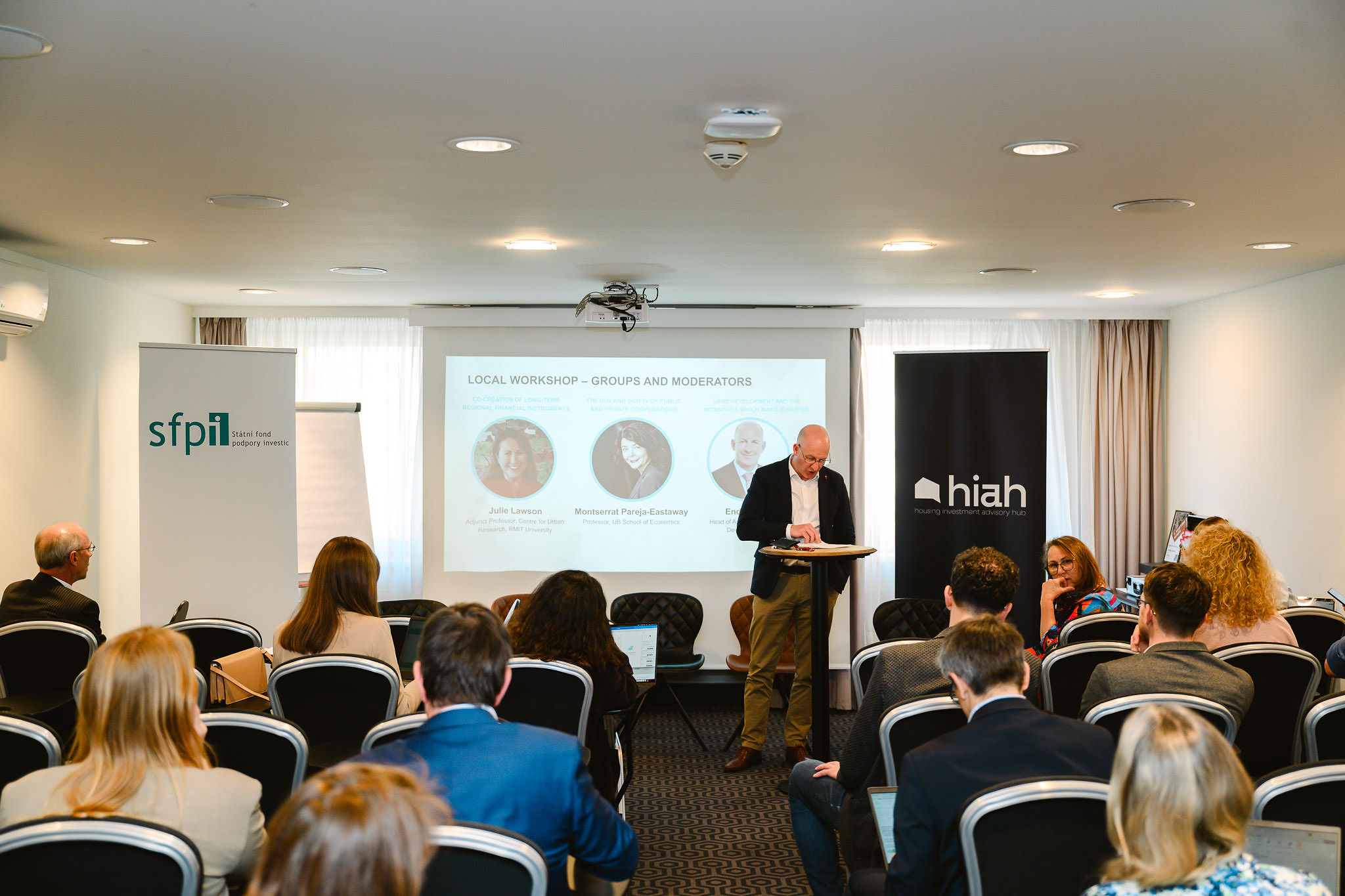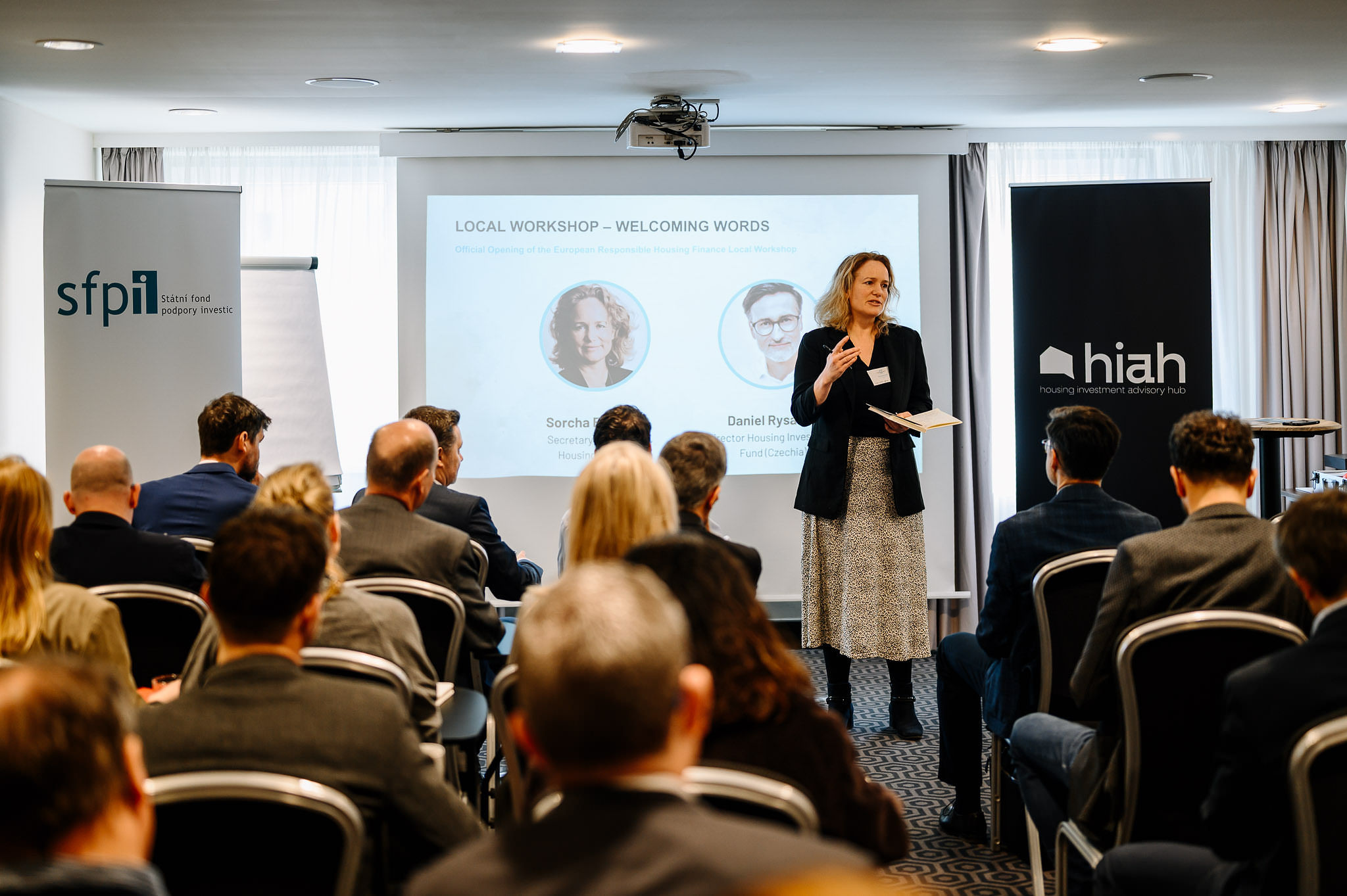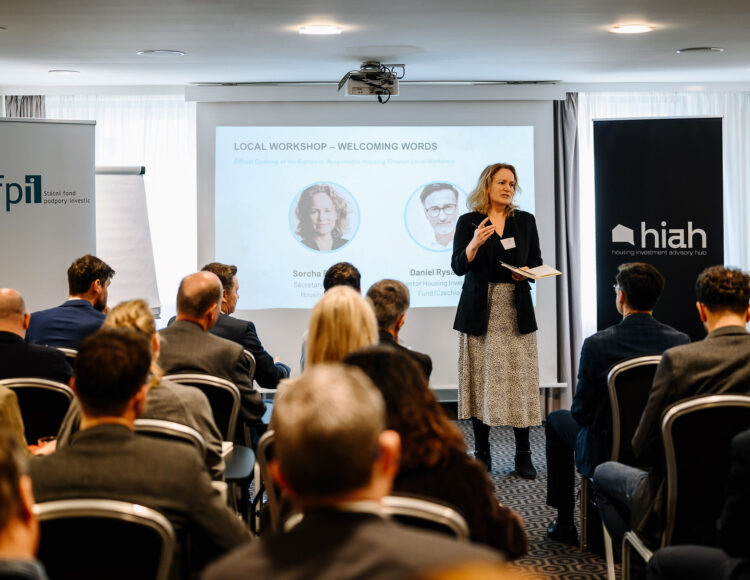On April 4, the city of Prague became a hub of dialogue and ambition as Housing Europe, together with the State Investment Support Fund, hosted a Local Workshop exploring one of Europe’s most pressing challenges: how to unlock private and public finance to make affordable and sustainable housing a reality for all.
This gathering, held under the banner of the European Responsible Housing Finance Working Group, brought together over 60 housing professionals, local authorities, and financial institutions. It was more than just a workshop—it was a statement of shared purpose. The challenge? Bridging the investment gap that still holds back the full potential of Europe’s housing systems.
A journey rooted in policy and practice
In her opening remarks, Sorcha Edwards, Secretary General of Housing Europe, reminded the audience that Prague has long been a symbolic and strategic starting point. It was here in 2017 that Housing Europe launched its first Working Group on countries with transitioning housing systems. That early work laid the foundations for a deeper understanding of political strategies, governance models, and the evidence base required to shape impactful housing policy.
Fast forward to 2023, and Housing Europe officially launched the European Responsible Housing Finance Working Group—a platform designed to do more than just talk. Its mission is to build capacity, facilitate peer learning, and develop innovative financial instruments that can sustain housing ecosystems in the long run. The Prague workshop is one of several initiatives under this framework, alongside high-level summits, research projects, and mentoring programs.
A region in transition, a sector in motion
Europe’s housing systems are evolving—but not evenly. While some countries have robust social housing frameworks, others are just beginning to define their approach. The Prague event offered a rare opportunity for cross-border exchange, addressing how regions at different stages of development can learn from one another.
The discussion focused on financial models that have already proven successful: from the Danish Housing Fund and France’s CDC, to the innovative bond-based lending systems of NWB Bank in the Netherlands and MuniFin in Finland. Participants explored how these examples could be adapted and scaled across other national contexts.
One key message was clear: financing affordable housing is not just about money—it’s about creating a legal and operational environment where investment can flow responsibly and efficiently.
Laying the groundwork for growth
Among the most thought-provoking parts of the day was the session on co-creating long-term regional financial instruments. Several essential principles emerged:
- The cost-recovery model is essential for sustainable operations—but must be paired with innovation and decent standards.
- Legal frameworks need to support the build-up and revolving of equity, while capping returns to protect the public mission.
- A well-structured model—with proper auditing, debt management, and long-term planning—is not only sustainable, it is attractive to investors and guarantees.
- Tax and land instruments can significantly influence investment behavior, but must be carefully designed to fit national contexts.
- Finally, inconsistent European accounting standards remain a barrier that needs to be addressed.
Support from established financial institutiosns
The presence of the European Investment Bank (EIB) sent a strong signal of institutional backing. The EIB is not only making funds available—it is also focused on building the capacity of regional stakeholders to access and manage those funds effectively. This capacity-building role is crucial if we want to see impactful and scalable investment in housing across the EU.
Adding a national dimension, HIAH (Housing Investment Advisory Hub), launched the previous day, offered insight into how public, private, and research sectors can collaborate more effectively to guide investment decisions and shape coherent housing strategies in Czechia.
Preparing for the journey ahead
As Sorcha Edwards put it, this Local Workshop was never intended to be a stand-alone event. It is one activity among many in the effort to equip Europe’s housing providers, municipalities, and decision-makers with the tools they need to respond to the affordability and climate crises.
The conversations that began in Prague will continue throughout 2025, through Housing Europe’s ongoing summit series, regional mentoring programs, and hands-on policy work.
This isn’t just about finance—it’s about rethinking how we structure our housing systems to be resilient, fair, and fit for the future.
Read more:
📘 Housing2030 Toolkit – A Resource for Policymakers
🧩 2023 Launch of the Responsible Housing Finance Working Group
🗳️ Highlights from the 2024 Finance Summit
